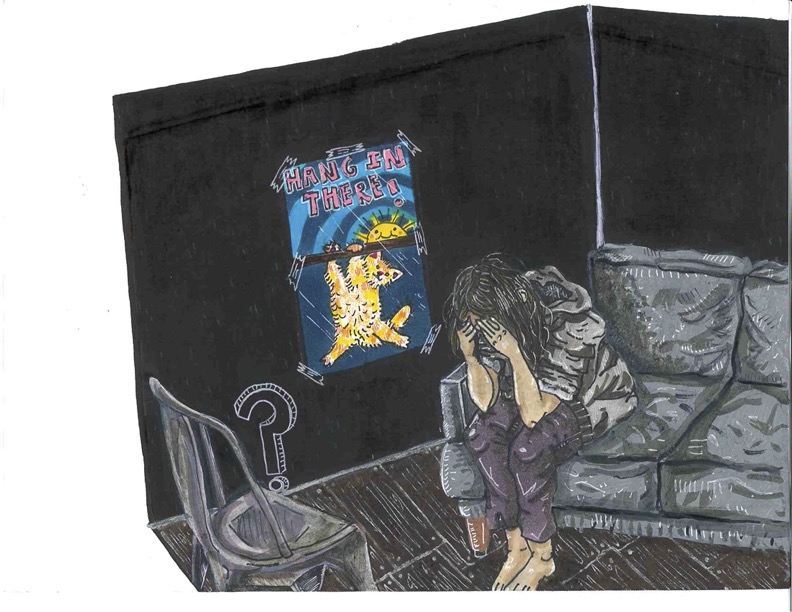Students struggle with consistent counseling
February 10, 2022
Kate Garrison spent three years building a strong and stable relationship with their Loyola mental health counselor, but when their counselor left in Spring of 2021, they struggled to find stability. Garrison said they felt out of place with their new counselor and frequently missed sessions due to their personal discomfort. As a result, they felt a loss of the support, consistency, and routine that this relationship had previously provided.
While the UCC offers a variety of counseling and case management options, some students say they have had a difficult time utilizing resources after Loyola lost two counselors in Spring of 2020. Some students chose to follow their counselors off campus and seek external mental health resources, while others began the daunting task of building a relationship with a new counselor. Despite university efforts to ease the transition and pair students with a new counselor, some struggled to build a new relationship.
“There’s the emotional aspect of transitioning, like accepting the loss, processing emotions associated with loss and change, reflecting on the meaning of the work”, said former Loyola counselor Claudia Norton. Norton said that the relationships clients form with their counselors carry a lot of weight, and the loss of this relationship must be handled with extreme care.
Garrison said that when their counselor left Loyola, she helped ease the transition to a new counselor. Most of the support that students receive comes from the previous counselor, rather than the UCC, according to Asia Wong, the Director of Counseling and Health Services at Loyola.
“I got really lucky because when the counselor that I had that left, she left a recommendation for who she thought my next counselor should be, and left them with notes,” Garrison said.
Despite the support they received from their previous counselor, Garrison still had difficulty during the transition period and said they wished the counseling center itself had been more involved. After their counselor left, they stopped visiting the center as frequently.
“I didn’t feel super comfortable initially with my new counselor, and so I was not going to counseling sessions as often,” Garrison said, “I think if the UCC had reached out after knowing I had been coming pretty regularly then all the sudden stopped going, it would have been better.”
Professional staff generally stay at Loyola for between three and five years, according to Wong. Graduate interns at the UCC only stay there for three semesters, the length of their programs. The UCC currently has eight professional staff, three clinical counseling interns, and two community educator graduate interns, according to Wong.Though counselor’s leaving can be difficult for students to grasp, it’s not uncommon for counselors to leave their profession or current position. The national turnover rate for mental health professionals was around 30% in 2018, compared to Loyola’s rate of 12.5%.
Andi Robinson, a recent Loyola graduate, had three separate counselors over the course of her time at Loyola and struggled with the transition.
“It was a very difficult time to start over with what was going on with me. But, a lot of them were very receptive,” Robinson said.
Robinson said that although she had a good relationship with her counselors, she had difficulty scheduling and would sometimes go two to three weeks between appointments.
Garrison believes that these issues are not entirely the fault of the UCC, but it is the UCC’s responsibility to address them.
“They’re doing the best that they can. But, the problem is that the best they can do is not necessarily enough for the whole student body”, Garrison said.
Despite the difficulties associated with ending a counseling relationship, transitioning to a new counselor doesn’t have to be traumatic, according to Norton.
Norton left Loyola last year to begin her own practice. She said that she gave her clients prior notice and helped them work through the transition process and plan future treatment.
“Initiating an ending is a tender subject and can bring up a lot of associations about loss, instability, and the meaning of the relationship at hand,” Norton said. “I think the goal is to honor the relationship that has been built and have a goodbye that provides closure, and simultaneously respond to what the client needs moving forward given that loss”
Artie Bennett contributed to this story.








